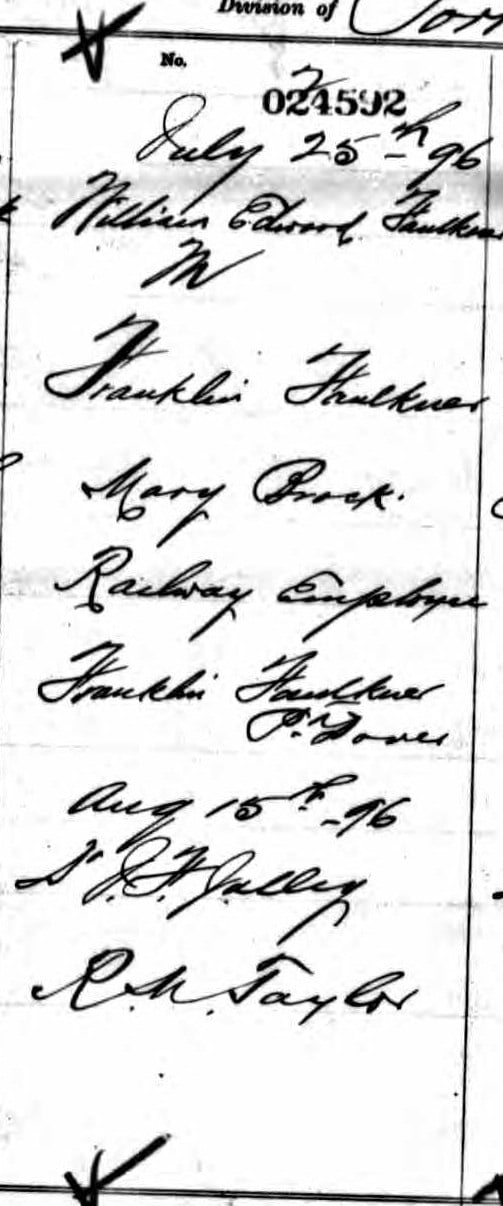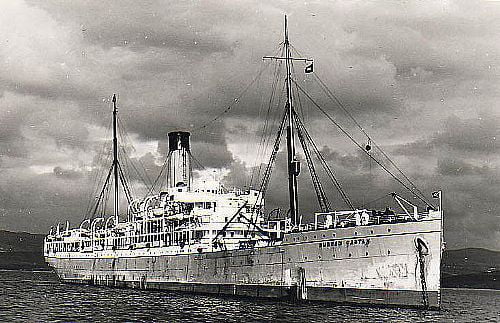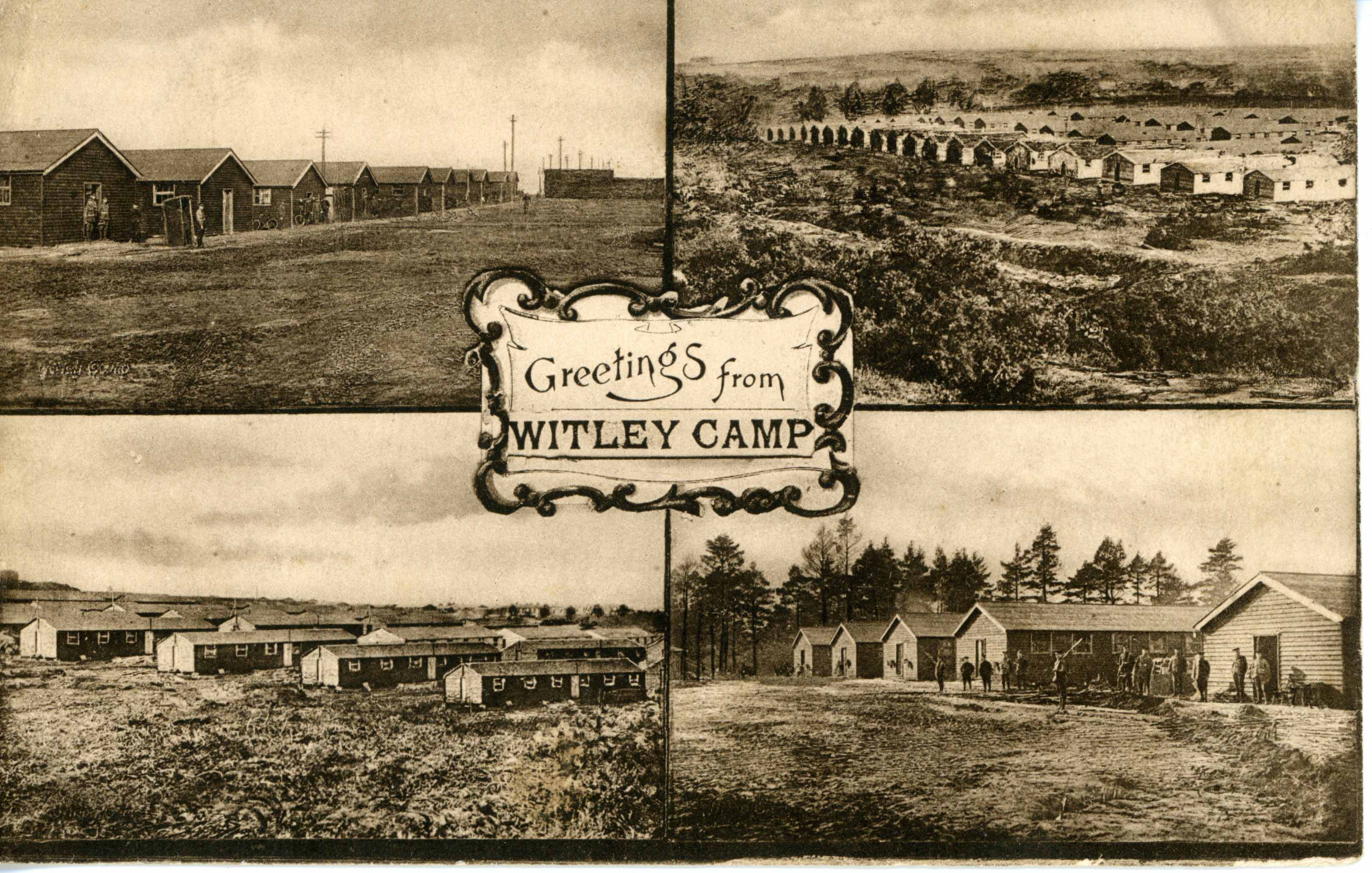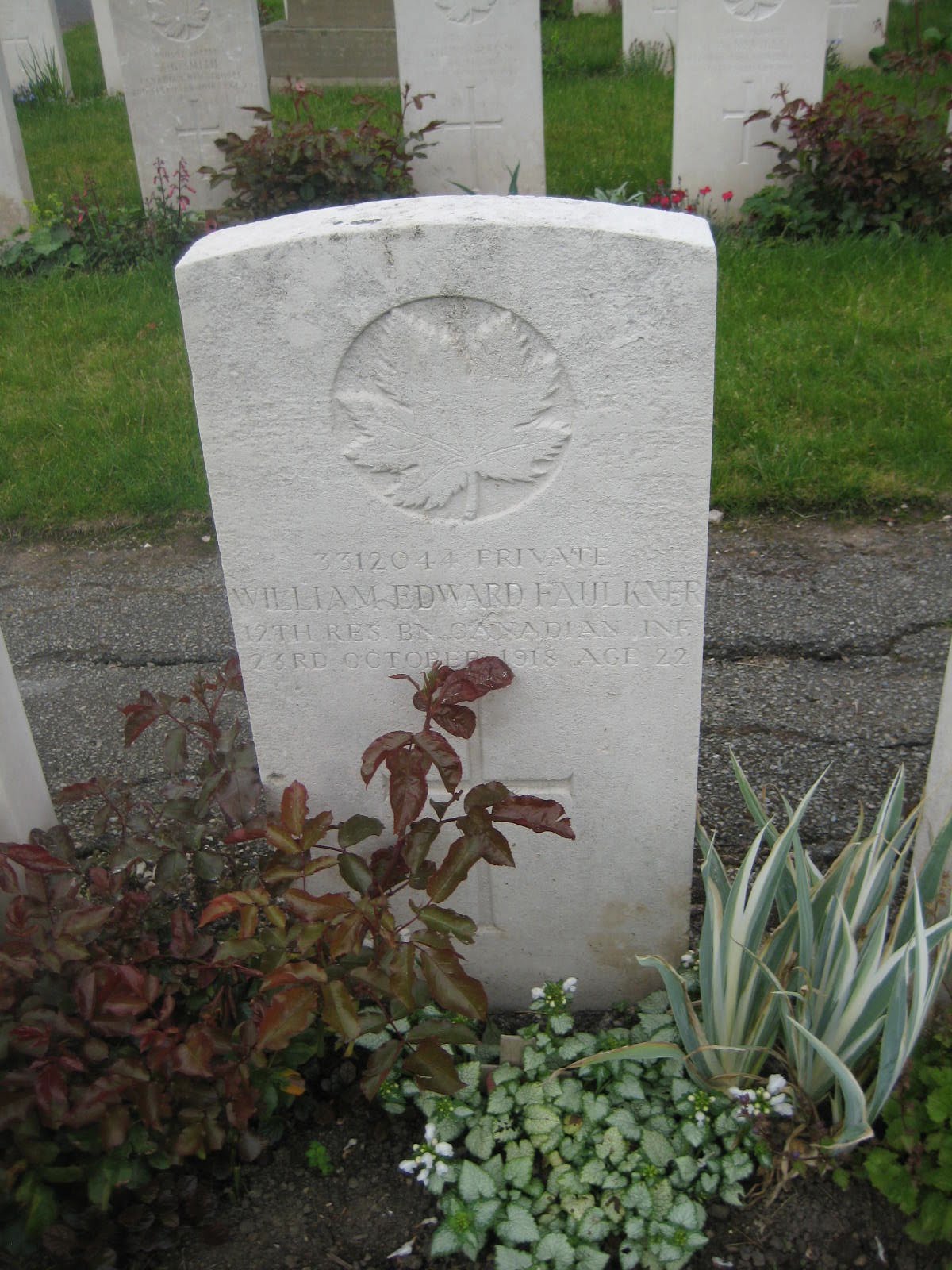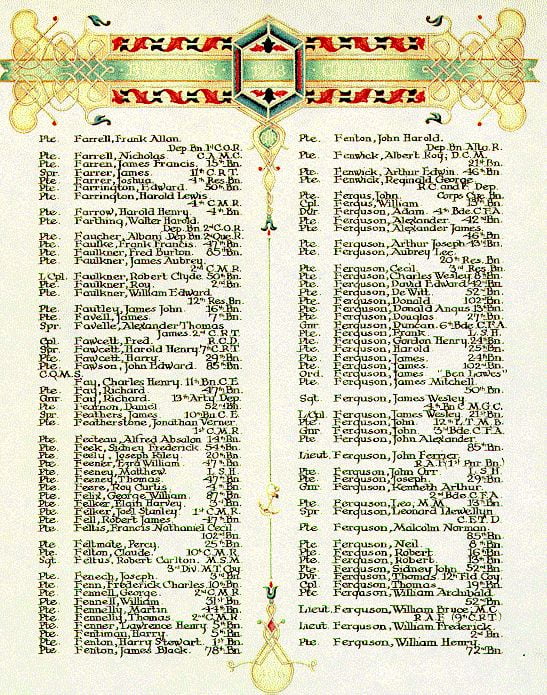The 1901 Census on Ancestry.co.uk shows that the Faulkner family was residing in Port Dover Village, Ontario. The Head of the household was Frank Faulkner aged 40. He was born on 11th August 1860 in England and worked as a Foreman on the Railways. He emigrated to Canada in 1866. His wife was Mary A. aged 36. She was born on the 1st January 1855 in Scotland. Their listed children were recorded as Percy K. Brock( her son from a previous relationship), aged 11 born on the 20th September 1889 in Ontario and William E. aged 4 born on the 25th July 1896 from her marriage to Frank Faulkner. There is also a boarder shown by the name of Beatrice E. Downs aged 16 born in 1884 in Ontario.
The 1910 Census tells us that the family was still living in Port Dover Village. They had an addition to the family, namely Hilda L. aged 8 who was born in December 1902. The head of the family Frank Faulkner was 51 years of age and a railway Worker. Mary A his wife was 46 and William was 14 years of age. Percy K. Brock was 22 years of age and was a Spinner in a Woollen Mill.
William Edward Faulkner’s Army records tell us that he was drafted into the 12th (reserve) battalion of the Canadian Infantry on 17th October 1917 at Simcoe, Ontario. He gave his next of kin as Frank Faulkner (father) and his trade as Carder. After training in Canada, and some time spent in a Depot Battalion William embarked for England on the S.S. Durham Castle arriving on 25th Sept 1918 when he was posted to Whitley Camp. As hostilities were coming to and end, William was posted to Kinmel Army Camp on 9th October 1918. Sadly William contracted Bronchial Pneumonia, and was admitted to the Canadian General Hospital where he died on 23rd October 1918.
(From Library and Archives of Canada, Soldiers of the First World War: 1914 – 1918).
Kinmel Park Camp was a segregation camp used to house Canadian Soldiers awaiting repatriation to Canada after the end of WW1. Unfortunately the conditions at that time were extremely harsh with a lack of every kind of commodity, the camp was overcrowded and the services were poor, there were shortages of clothing, food and blankets. As a result of this situation, a vast number of servicemen and women became ill and many succumbed to the Influenza Epidemic or complications associated with this infection.
He was buried in St. Margaret’s Cemetery Bodelwyddan, North Wales, U.K.
William is commemorated on the Canadian Virtual War Memorial
